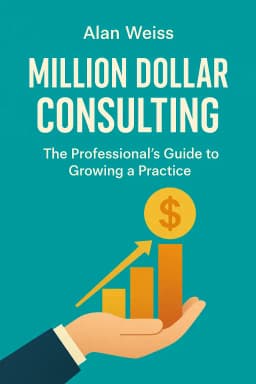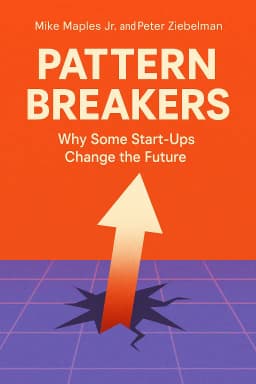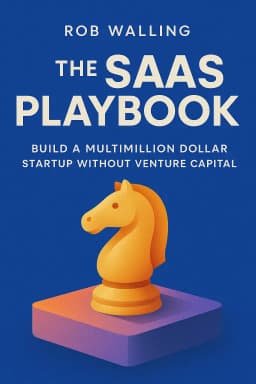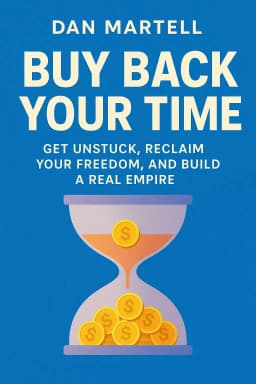
The Hourly Rate Lie
The Professional’s Guide to Growing a Practice, Fourth Edition
Golden Hook & Introduction
SECTION
Mark: What if I told you the single biggest mistake you can make in your career is charging by the hour? That every time you send an invoice for your time, you're actually making yourself poorer. Michelle: Okay, hold on. That sounds completely backward. My time is what I have to sell. If I don't charge for it, how do I make a living? That feels like rule number one of being a professional. Mark: It sounds crazy, but it’s the provocative heart of Million Dollar Consulting by Alan Weiss. This book is a legend in the consulting world, and Weiss himself is a character—a PhD in organizational psychology who's known for being this 'Rock Star of Consulting,' constantly challenging the industry's norms. Michelle: Right, he's not exactly known for pulling his punches. And the book has been a bestseller for decades, which tells you these 'crazy' ideas have some serious staying power. It all starts with a really fundamental, almost absurd, idea about what a consultant even is.
The Consulting Paradox: Why Anyone Can Be a Consultant, and Why That's Dangerous
SECTION
Mark: Exactly. Weiss tells this incredible story. He's at the Ritz-Carlton in Naples, Florida, for one of his high-end workshops. He's got 12 consultants with him. He walks up to the hotel's senior management and says, "I have 12 world-class consultants in the room, and we're here to work on some of your hotel's challenges." Michelle: And I'm guessing they asked for résumés, client lists, proof of their 'world-class' status? Mark: Not at all. The management's reaction was just, “Wow, we’re lucky to have you.” They didn't ask for a single credential. Meanwhile, a woman in the workshop is looking around the room, completely bewildered, trying to figure out who these so-called 'world-class consultants' are. Because in her mind, they were just... people in a class. Michelle: That's a great story, but it sounds like a one-off bluff. Can anyone really just declare themselves an expert and get away with it? That feels like pure bravado. Mark: That's the paradox! It's not about bluffing; it's about understanding that in a field with no formal gatekeepers—no bar exam, no medical boards—your confidence and your focus on results become your credentials. The hotel didn't care about their résumés; they cared about the promise of solving their problems. Michelle: So the 'bad news' is that anyone can call themselves a consultant, but the 'good news' is... anyone can call themselves a consultant? Mark: Precisely. And that's why Weiss opens the book with a quote from the poet Basho: "Do not seek to follow in the footsteps of the men of old; seek what they sought." It’s not about copying what successful people did; it’s about understanding the principles that made them successful. In this case, it’s about projecting value and focusing on the client's outcome, not your own qualifications. Michelle: I see. So if your credentials are your results, that must completely change how you get paid. Which brings us back to your hook about not charging for time. That still feels like the trickiest part of this whole philosophy.
The Value-Based Revolution: Stop Trading Time for Money
SECTION
Mark: It is the trickiest, and it's the most important shift in the entire book. Weiss argues that the moment you charge by the day or by the hour, you become a pair of hands. You're a cost to be managed. He has this perfect story that illustrates the point. Michelle: I'm ready. Hit me with it. Mark: He gave the exact same speech, word for word, twice in one day. The first was in the afternoon to a group of executives at Atlantic Electric. For that one-hour speech, he was paid $7,500. The executives, he said, thought it was the greatest thing since cold beer. They were engaged, taking notes, asking questions. Michelle: Okay, a high-paying, happy client. Makes sense. What about the second speech? Mark: That evening, he gave the identical speech to the Rhode Island Personnel Association. He did it pro bono, for free. And the audience? He said they "sat there like stumps." They were disengaged, checking their watches. The content was the same, but the perceived value was zero. Michelle: Wow. So the only thing that changed was the price tag? And that single factor changed how people perceived the value of the exact same information? Mark: Exactly. It's the 'you get what you pay for' psychology, but on a professional level. Weiss argues that when you charge by the hour, you're a commodity, easily compared to others. But when you charge for value—for the outcome, the problem solved, the money saved—you become an investment. Michelle: Okay, 'value-based' sounds great, but what does that actually mean? How do you put a number on 'value' without it feeling like you're just pulling it out of thin air? Mark: It's about changing the conversation. You stop asking, "How much time will this take?" and you start asking the client, "What is this outcome worth to you? If we solve this problem, what will it mean for your business in terms of revenue, cost savings, or market position?" For example, he tells a story about designing a new performance-appraisal system. Instead of quoting his days, he calculated that the client's broken system was costing them $400,000 a year in wasted time. Michelle: Ah, so he anchored his fee to that massive number. Mark: Right. He proposed a fee of $86,000. It sounds like a lot, but compared to the $100,000 they'd save in the first year alone, it was a fantastic investment. The conversation shifts from "How much does your time cost?" to "What is this solution worth to me?" And once you're seen as an investment, not a cost, you start to build what Weiss calls 'market gravity.'
Market Gravity: Making Clients Come to You
SECTION
Michelle: 'Market gravity.' I like the sound of that. It implies you're not constantly out there hunting for work. The work comes to you. Mark: That's the goal. It's the ultimate result of applying these principles. And the key to creating it is a concept he calls "thinking of the fourth sale first." Michelle: The fourth sale? What happened to the first, second, and third? Mark: It means that in every interaction, from the very first call, you're not just trying to close the immediate deal. You're building a relationship that will lead to the fourth project, and the fifth, and a stream of referrals. You're playing the long game. Michelle: That's a great long-term vision, but how does that change what you say in the first meeting with a potential client? What do you do differently? Mark: You listen more. You diagnose deeper. You're not just there to fulfill a request; you're there to become an indispensable partner. He tells this amazing story about being asked to coach a division president on his delegation skills. The initial project looked like it would be about $15,000. Michelle: A straightforward coaching gig. Mark: That's what it seemed. But instead of just jumping in and teaching delegation techniques, Weiss focused on building a deep, trusting relationship. And because of that trust, the president eventually opened up. He revealed that the real problem wasn't his ability to delegate; it was that the entire company culture was authoritarian and risk-averse. No one felt safe enough to accept delegation. Michelle: So the problem he was hired to solve wasn't the real problem at all. Mark: Not even close. The project immediately morphed from a small coaching assignment into a massive, $65,000 organizational development project to change the culture. And that led to a series of five one-year retainers at $100,000 each. The total business grew from a potential $15,000 to over half a million dollars. Michelle: All because he looked past the first sale and built a relationship of trust. That's incredible. But I have to ask, this all sounds great for a one-person shop, but how does this scale? Does this advice hold up in a larger firm, or is it a solo-preneur's game? Mark: That's a fair critique some readers have. The book is definitely geared towards the solo practitioner or small boutique firm. Weiss's philosophy is that you are the talent. The brand is you. For larger firms, the principles of value-based fees and relationship building still apply, but the 'market gravity' might be centered around the firm's brand rather than an individual. But for the audience he's targeting, the message is clear: your personal reputation is everything.
Synthesis & Takeaways
SECTION
Michelle: It really does all seem to connect. You start by projecting confidence because, in this field, there are no formal gatekeepers. That confidence then gives you the standing to price your work based on the value you create, not the time you spend. Mark: And pricing on value forces you to have deeper conversations, which builds the kind of long-term, trusting relationships that lead to repeat business and referrals. Michelle: Which, in turn, creates that 'market gravity' that pulls new clients toward you. It's a self-reinforcing loop. Mark: Exactly. And if there's one thing to take away from Million Dollar Consulting, it's to ask yourself this question before your next project: 'Am I selling my time, or am I selling a result?' The answer to that question, according to Weiss, determines whether you're just practicing or building a million-dollar career. Michelle: That is a powerful question to sit with. It reframes everything. We'd love to hear what you think. Does this value-based model resonate with you, or does it feel too risky in your field? Find us on our socials and let us know. Mark: This is Aibrary, signing off.









